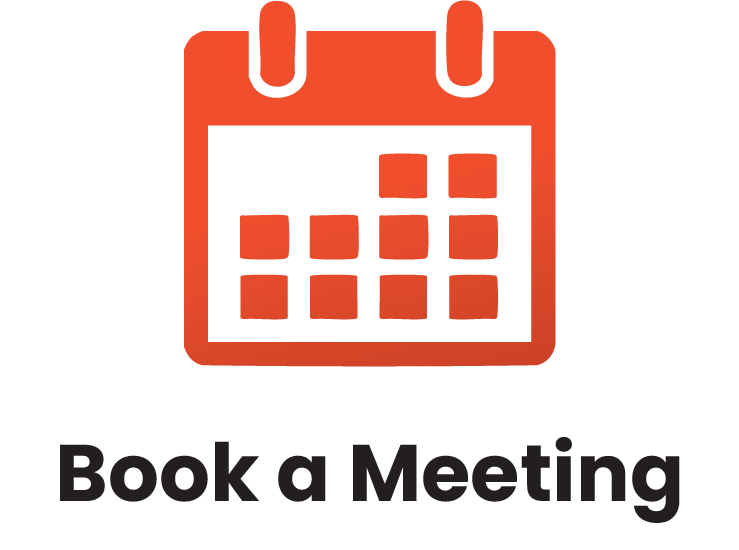Interactive training sessions led by experienced facilitators.
What is In-Person, Instructor-Led Training?
Our in-person training is delivered by a live facilitator who works directly with your team at your location. It’s our most popular format because it allows for real-time interaction, hands-on learning, and direct support.
Every session is tailored to your team’s specific goals, industry, and challenges—no generic, one-size-fits-all programs. Whether it’s a single session or a full training series, we design the experience to be relevant, practical, and fully aligned with your needs.
What is Live Webinar Training?
Live webinars are facilitator-led training sessions delivered online in real time. They’re ideal for teams working in different locations or with busy schedules.
This format offers shorter, more frequent sessions that are easy to coordinate—making it a convenient option for organizations with remote or distributed teams.
What is Virtual Classroom Training?
Virtual Classroom training is live, instructor-led training delivered online. It offers the same interactive experience as in-person sessions, with real-time discussions, group activities, and instructor feedback.
It’s a flexible option for organizations that want to reduce travel, save costs, or better fit training into busy schedules.
What is a Lunch & Learn Session?
Lunch & Learn sessions are short, facilitator-led training sessions delivered in person or online—typically during the lunch hour. They focus on specific topics or skills and offer a quick, engaging way to learn without a full-day commitment.
These sessions can be offered as one-time events or as part of a series, making them a great option for ongoing, bite-sized learning.
Online Learning
Enjoy our self-paced option and learn from anywhere!
$425.00 USD
Advanced Skills for the Practical Trainer
Behind every spectacular training session is a lot of preparation and meticulous attention to detail. The truly skilled trainer can make a program exciting. The learners will have fun while they are learning if the facilitator is able to involve their emotions as well as their minds. You will see the involvement, and you will feel the energy.
To reach this stage as an adult educator isn’t always easy, but success isn’t just for the naturally gifted. It is possible for all of us who put effort into our personal growth and development. We want the enormous satisfaction that comes from working with others to help them reach their potential as human beings. This three-day workshop will help you reach that goal.
This workshop requires that you have a good understanding of basic training principles, including adult learning concepts, Mainstream Corporate Training’s experiential learning cycle, training methods, and designing a learning sequence. We strongly recommend completing Mainstream Corporate Training’s “The Practical Trainer” workshop before taking this course.
LEARNING OBJECTIVES
Learning Objectives
Objectives for this workshop include:
- Enhance your understanding of learning styles and how to accommodate all four learning styles in the classroom
- Understand the key principles of effective communication in a workshop setting
- Use a variety of training techniques to stimulate participation
- Develop a plan and prepare for an effective training session
- Understand the different levels of evaluation and when to use each
- Understand how and when to add fun and humor to your training session
- Identify advanced interventions for difficult situations
- Practice the skills needed for a team presentation


COURSE OUTLINE
Preparing to Learn
To begin, participants will explore what they want out of this workshop.
Understanding Learning
Next, participants will talk about the role of the facilitator and the top skills a trainer needs.
Competencies for Adult Educators
This session will give participants a profile of the gaps between where they are now and where they need to be in order to perform their role efficiently.
Accommodating Learning Preferences
Next, participants will review Kolb’s experiential learning cycle and how it fits in with different learning styles.
Increasing Your Expertise
This session will explore three basic ideas about adults in a learning context. Participants will also look at the workshop from a designer’s perspective.
Using Existing Materials
In this session, participants will learn about using customizable course material to give them a head start, copyright concerns, and how to over-plan to ensure success.
Managing the Stress of Training
During this session, participants will learn ways to manage their stress and that of trainees.
Planning a Workshop
Next, participants will receive a brief introduction to planning and preparing a workshop.
Visual Aids
This session will cover some basic kinds of visual aids and encourage participants to determine if, how, and when they want to use each type.
Your Role as an Effective Communicator
During this session, participants will learn how to communicate effectively as a facilitator or trainer.
Questioning as a Training Technique
This session will explain how good questioning skills can make anyone a better trainer.
Kirkpatrick’s Levels of Evaluation
Next, participants will explore the four levels of evaluation, including samples for each type. Then, participants will develop their own evaluation for their training session at the end of the workshop.
On-the-Job Support
During this session, participants will explore why on-the-job support is so important after training has taken place, and what they can do to encourage it.
Dealing with Difficult Situations
This session will give participants some tools for dealing with common training problems.
Training in Different Forums
Next, participants will explore some different forums for training, including virtual formats.
Team Teaching
Next, participants will talk about co-facilitation.
Training Preparation and Presentations
The bulk of the third day will be spent preparing, presenting, and evaluating team training sessions.


















